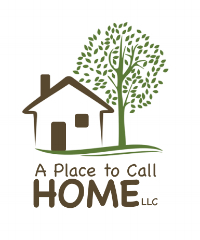How To Pay for Assisted Living, Memory Care, and Adult Family Homes
If you or a loved one decide it’s time for additional care like assisted living, the financial stress may overwhelm your family. While nearly one million Americans rely on assisted living, most health insurance plans don’t cover long-term care, such as assisted living, adult family homes, or nursing homes. Some insurance plans may cover short-term skilled nursing home care, but, in general, assisted living, memory care facilities, and adult family homes are not covered by health insurance. So, what are your options?
Veteran Aid
If your health insurance plan won’t cover the costs associated with assisted living or adult family homes and you are a veteran of the United States Armed Forces, you may be eligible for financial assistance from the United States Department of Veteran Affairs. The aid and assistance benefit from the VA may help you pay for care in either your home, a nursing home, or in an assisted living community such as A Place To Call Home, LLC. However, to qualify for this monthly pension benefit, you must either:
- Be bedridden.
- Reside in a nursing home due to a mental or physical problem.
- Have corrected eyesight of 5/200 or less in both eyes.
- Require the aid of another person to bathe, dress, or eat.
For more information on the aid and assistance benefit, visit the Department of Veteran Affairs website.
Medicare
Medicare will not cover the cost of assisted living, memory care, or adult family homes. It may, however, cover some of the costs of health care your loved one receives while in a facility.
Medicaid
Medicaid is a last-resort option, as the government program will only pay for care for those with little to no assets.
Long-Term Care Insurance

An adult family home such as A Place To Call Home in Vancouver, WA, can provide your loved one with individualized and compassionate care.
Private insurers offer long-term care insurance. Much like health insurance in the United States, long-term care insurance prices vary depending on multiple factors such as the insured’s health, age, and amount of coverage. Some private insurers deny coverage for people with pre-existing conditions such as a previous stroke, multiple sclerosis, Alzheimer’s disease, and Parkinson’s disease. However, also like health insurance providers, private long-term care insurance providers vary widely in their qualifying criteria. Just because someone does not qualify at one company, another company may still accept that person.
Investment-Based Options
The following ways to pay for an Adult Family Home (AFH) or assisted living facility are based on significant financial transactions rather than government aid. Not everyone can take advantage of these methods, but they are common ways that Americans pay for assisted living in adult family homes.
Life Insurance Settlements
A life insurance settlement can convert life insurance into money that can be used to pay for long-term care. The life insurance company repurchases it for between 50 and 75 percent of its face value. Then, the settlement company pays the premiums until the policyholder dies. At this point, the company receives the money from the settlement instead of the policy’s original beneficiaries.
Reverse Mortgages
A reverse mortgage doesn’t work for every situation. Still, it’s a way to finance assisted living or memory care in adult family homes for a spouse or loved one if you are at least 62 years old and own your home outright or have significant equity in the house. Using the equity in your home to finance assisted living is the last resort for eligible homeowners, but it’s an option for those with limited cash flow after retirement.
Rent Your Property
Another option to increase income if a loved one needs to move into an adult family home or assisted living facility is to rent the house. This way, the ownership stays with the family, and there is income to pay for living expenses.
Personal Income or Savings
Unfortunately, many Americans are not in a financial situation in which they can use their life savings or regular income to pay for assisted living, though this is the most straightforward way to provide assisted living services for a loved one.
The Difference Between An Adult Family Home And An Assisted Living Facility
Adult Family Homes (AFHs) are an alternative to a traditional nursing home or assisted living facility. A Place To Call Home, LLC in Vancouver, WA, is an adult family home owned by a nurse practitioner. It is aimed to improve the quality of life while reducing comorbidities, hospitalizations, and the overall cost of health care. All adult family homes provide some essential services, including assistance with activities of daily living, meals, laundry, and more. The level of care each home offers will vary. Nurses operate some adult family homes, or they hire nurses or other appropriately-licensed staff to support a resident’s needs. Others may specialize in the care of residents with dementia or Alzheimer’s disease. All adult family homes are required to have a current assessment of the client and a plan of care reflecting not only the needs of the resident but their preferences in how they would like to receive those services.
Staff to Resident Ratio
While nursing homes or assisted living facilities can have as little as one caregiver for 28 residents, A Place To Call Home has one to two caregivers for every six to eight residents. Since adult family homes are smaller and often operated by the owner, there is often more flexibility in being able to provide services that meet each individual’s needs. The small, intimate, residential, home-like feel of an adult family home may be the right option for you or your loved one.
Cost
Some nursing homes and assisted living facilities can cost as much as $500 a day, while adult family homes typically cost between $150 and $250 a day. Adult family homes offer affordable long-term care rates. Fees are based on the level of care needed and the type of room desired.
The Benefits of Adult Familly Homes
There are multiple benefits to adult family homes beyond cost and staff to resident ratio, including:
- Improved patient outcomes.
- High-quality compassionate care that can be individualized.
- Emotional, spiritual, and physical support in a family environment.
- Allows seniors to be as self-sufficient as possible while maintaining dignity.
- Higher patient satisfaction.
- Customized activities and companionship
- More personal, home-style living environment.
- Collaboration with family and healthcare team.
- Highly trained staff who are certified.
- All AFH owners and their staff undergo significant training before working directly with clients. Further, they must keep up with training and best practices in care by completing a minimum of twelve hours of continuing education (CE) per year.
- All AFHs are inspected annually by the state to ensure they are meeting the highest set level of care and standards.
About A Place To Call Home, LLC: An Adult Family Home
A Place To Call Home, LLC provides seniors compassionate, high-quality nursing care and assistance in a loving home environment. The care provided encompasses a full range of nursing care, memory care, Alzheimer’s care, diabetes management, medication management, rehabilitation, respiratory care, and hospice, along with daily living assistance, laundry, cleaning, cooking, on-site and off-site activities, companionship, family involvement, and collaboration with medical doctors and therapists. Seniors, individuals, and couples are allowed to live a high-quality life with dignity while maintaining both
independence and integrity.
A Place To Call Home, LLC is operated by a family of medical and business professionals. The owner is a nurse practitioner with over 20 years of experience in the healthcare field. The custom-built home is warm, welcoming, spacious, and built to accommodate the individual needs of seniors. Each resident has their own bedroom and bathroom, access to a covered patio for wildlife observation, and a welcoming living area. Seniors are giving opportunities to participate in activities, games, exercises, gardening, and delicious family-style home-cooked meals. To learn more about A Place To Call Home and set up an appointment, give us a call today!

